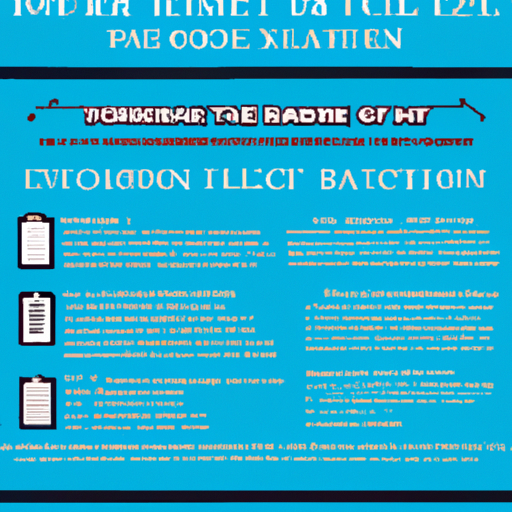When it comes to maintaining your pool, having the right equipment is crucial. After all, no one wants to swim in a pool with cloudy water or debris floating around. So, let’s dive into what kind of equipment you’ll need to keep your pool clean and sparkling all season long.
First and foremost, a good pool filter is essential. This will help to remove dirt, leaves, and other debris that can accumulate in your pool. There are three main types of pool filters: sand filters, cartridge filters, and DE (diatomaceous earth) filters. Each has its pros and cons, so it’s important to choose the one that best fits your needs and budget.
Next, you’ll need a pool pump. This is what circulates the water through the filter, keeping it clean and clear. A properly sized pool pump is important to ensure that the water in your pool is properly filtered and sanitized. A pool pump with a variable speed motor is also a great investment, as it can help you save on energy costs in the long run.
Lastly, don’t forget about pool testing kits and chemicals. Testing kits will allow you to monitor the water chemistry and make any necessary adjustments to keep your pool balanced. Additionally, you’ll need to use chemicals like chlorine or bromine to sanitize the water and keep it safe for swimming.
Now that you have a general idea of the equipment needed to maintain your pool, let’s dive deeper into each component and learn more about their specific functions in our upcoming article. Stay tuned to become a pro at pool maintenance! Maintaining a pool can be an enjoyable and rewarding experience, but it does require the right equipment to keep your pool clean, safe, and comfortable. In this article, we will explore the various types of equipment you need to maintain your pool effectively.

Pool Cleaning Equipment
Pool Skimmer
One essential piece of equipment for pool maintenance is a pool skimmer. A pool skimmer is a net-like tool that is used to remove leaves, debris, and other floating particles from the surface of the water. This equipment is typically attached to a telescopic pole, allowing you to reach all areas of your pool easily. Regular skimming helps to keep your pool water clean and clear, preventing blockages in your filtration system.
Pool Vacuum
Another crucial tool for maintaining your pool is a pool vacuum. Pool vacuums come in various types, including manual, automatic, and robotic options. Manual vacuums require you to move them around the pool manually, while automatic and robotic vacuums do the work for you. These vacuums are designed to remove dirt, sand, and other debris from the bottom of your pool, ensuring that your pool water is clean and free of any contaminants.
Pool Brush
A pool brush is a must-have for pool owners, as it helps to remove algae, dirt, and other stains from the walls and floor of your pool. Regular brushing not only keeps your pool looking clean and inviting but also prevents the buildup of algae and other bacteria. There are different types of pool brushes available, including nylon and steel brushes, which are suitable for different pool surfaces.
Water Circulation Equipment
Pool Pump
The heart of your pool’s circulation system is the pool pump. Pool pumps circulate water through the pool’s filtration system, keeping the water clean and clear. This process helps to remove impurities and maintain the proper chemical balance of your pool. When choosing a pool pump, consider factors such as the size of your pool and the desired flow rate.
Pool Filter
A pool filter works in conjunction with the pool pump to remove debris, dirt, and other contaminants from your pool water. Pool filters come in three main types: sand filters, cartridge filters, and diatomaceous earth (DE) filters. Each type has its advantages and maintenance requirements, so choose one that suits your needs and budget. Regular cleaning and maintenance of your pool filter are essential to ensure optimal performance and water clarity.
Chemical Testing and Adjustment Equipment
Pool Test Kit
To maintain the proper chemical balance of your pool water, you need a pool test kit. This essential equipment allows you to test the pH, chlorine, alkalinity, and other chemical levels in your pool water. Regular testing helps you to monitor and adjust these levels, ensuring that your pool water is safe and comfortable for swimming.
Pool Chemicals
In addition to a pool test kit, you will need various pool chemicals to maintain the proper water balance. These chemicals include chlorine or other sanitizers, pH adjusters, alkalinity adjusters, and shock treatments. Consult with a pool professional or refer to manufacturer guidelines to determine the appropriate amounts and frequency of chemical treatments for your pool.
pH Adjusters
The pH level of your pool water is crucial for the effectiveness of sanitizers and the comfort of swimmers. pH adjusters, such as pH increasers and pH decreasers, help you maintain the proper pH balance in your pool. Regular testing and adjustment of pH levels are necessary to prevent skin and eye irritation and ensure the effectiveness of sanitizing agents.

Pool Covers
Solar Pool Cover
A solar pool cover is an excellent investment for pool owners looking to conserve energy and maintain water temperature. These covers are made of special materials that trap heat from the sun, reducing heat loss and evaporation. Solar pool covers also help to keep debris out of your pool, reducing the need for frequent skimming and cleaning.
Winter Pool Cover
During the winter months or when your pool is not in use, a winter pool cover is essential to protect your pool from leaves, debris, and harsh weather conditions. These covers are typically made of durable materials, such as vinyl, and are designed to resist UV rays and prevent the growth of algae. Investing in a high-quality winter pool cover ensures that your pool is ready to use when the warmer months arrive.
Pool Safety Equipment
Pool Fence
Safety should be a top priority when owning a pool, especially if you have children or pets. Installing a pool fence is an excellent way to enhance the safety of your pool area. A pool fence provides a physical barrier, preventing unauthorized access and reducing the risk of accidents. Make sure your pool fence complies with local regulations and is properly maintained.
Pool Alarms
Pool alarms are another essential safety feature for pool owners. These alarms are designed to alert you if someone enters the pool area or if there is a change in water pressure. There are different types of pool alarms available, including gate alarms, surface wave alarms, and underwater alarms. Installing a pool alarm adds an extra layer of safety and peace of mind.
Pool Maintenance Tools
Pool Net
A pool net, or leaf rake, is a useful tool for removing larger debris, such as leaves and twigs, from your pool. This net is attached to a telescopic pole and is particularly handy during the fall season when leaves are abundant. Regular use of a pool net helps to prevent clogged skimmers and reduces the load on your pool’s filtration system.
Telescopic Pole
A telescopic pole is a versatile tool that allows you to attach various pool cleaning attachments, such as skimmers, brushes, and nets. These poles can be extended and adjusted to reach different areas of your pool easily. Investing in a high-quality telescopic pole ensures that you can perform your pool maintenance tasks efficiently and effectively.
Pool Brush
As mentioned earlier, a pool brush is essential for keeping your pool walls and floor clean and free from algae and stains. Attach the pool brush to your telescopic pole and brush the walls and floor of your pool regularly. Different types of brushes are available for different pool surfaces, so choose one that is suitable for your pool.
Pool Heater
Gas Heater
If you live in a colder climate or want to extend your swimming season, a pool heater is a valuable addition to your pool equipment. Gas heaters, powered by natural gas or propane, heat the water quickly, allowing you to enjoy your pool even when the weather is cool. Gas heaters are generally more expensive to operate but heat the water more rapidly compared to electric heaters.
Electric Heater
Electric heaters are another option for heating your pool water. These heaters use electricity to generate heat and maintain the desired water temperature. Electric heaters are generally more energy-efficient than gas heaters and have lower operating costs. However, they take longer to heat the water compared to gas heaters.
Pool Lighting
Underwater Pool Lights
Underwater pool lights not only add a touch of elegance to your pool but also improve safety by illuminating the water at night. These lights come in various colors and styles, allowing you to create the desired ambiance for your pool area. LED lights are a popular choice for their energy efficiency and long lifespan.
Pool Area Lights
In addition to underwater pool lights, installing lights around your pool area enhances visibility and safety. Pool area lights can be installed on the deck, along walkways, and near pool entry points. These lights provide adequate illumination for nighttime swimming and prevent accidents due to poor visibility.
Automatic Pool Cleaners
Robotic Pool Cleaner
Robotic pool cleaners have revolutionized the way pools are cleaned. These devices operate independently, navigating the pool surface, walls, and floor, and removing debris with ease. Robotic cleaners are efficient and energy-saving, as they have their own filtration system and do not rely on your pool’s circulation system. Although they can be more expensive than other pool cleaners, the convenience and effectiveness they provide are worth the investment.
Suction Pool Cleaner
Suction pool cleaners are another popular type of automatic pool cleaner. These cleaners operate by attaching to your pool’s suction ports and utilizing the power of your pool pump to move around and collect debris. Suction pool cleaners are typically more affordable than robotic cleaners but may require additional maintenance and can put strain on your pool’s circulation system.
Conclusion
Owning a pool requires regular maintenance and the right equipment to ensure clean, safe, and enjoyable swimming conditions. From pool skimmers and vacuums to pool pumps and filters, each piece of equipment plays a vital role in maintaining your pool’s cleanliness and water balance. Additionally, safety equipment such as pool fences and alarms, along with pool maintenance tools, are essential to keep your pool in top shape. Consider your needs, budget, and pool size when choosing the equipment that best suits your pool maintenance requirements. With the right equipment and regular maintenance, you can enjoy a sparkling clean pool for years to come.
